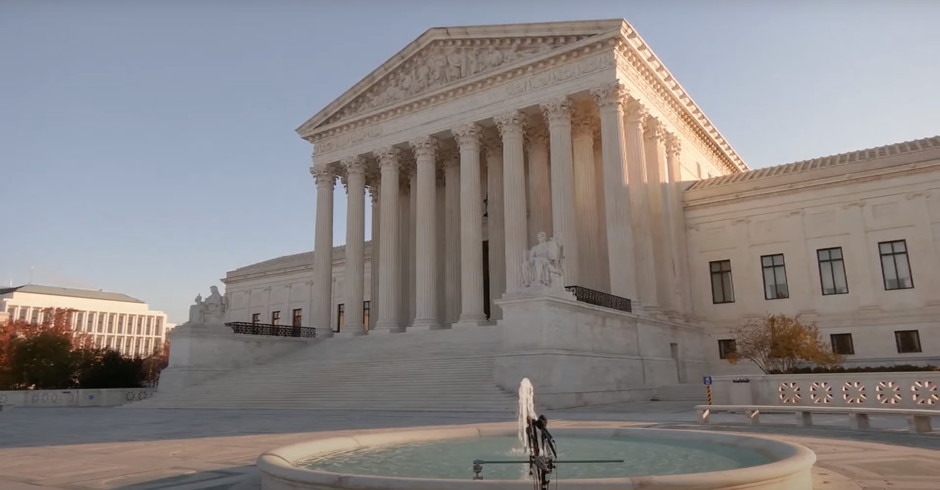News
‘Work Until You Drop Dead’: House GOP Plan Takes Ax to Social Security, Healthcare, Civil Rights

The Republican Study Committee has released its proposed 2025 budget which would take an ax to major elements of the social safety net, healthcare system, and civil rights, while affecting nearly every American, either now or in the future.
Calling it “Fiscal Sanity to Save America,” the budget proposal from the far-right MAGA-affiliated group of about 170 House Republicans would effectively create a national abortion ban and ban on in-vitro fertilization procedures (IVF) by creating legal protections for human embryos starting at “the moment of fertilization.” It mentions the word “abortion” 77 times.
Speaker of the House Mike Johnson is a member and former chairman of the Republican Study Committee.
“The House GOP Study Committee (largest House GOP bloc) released a budget endorsing the Life at Conception Act, which would provide 14th amendment legal protections at every stage of life,” explained Joseph Zeballos-Roig, Semafor’s domestic policy and politics reporter. “Amounts to near-total ban on abortions with no IVF exceptions.”
U.S. Rep. Bill Pascrell (D-NJ) blasted the Republican Study Committee’s budget.
READ MORE: Speaker Johnson Using Ban on LGBTQ Pride Flags to Sell Critical Funding Bill
“Wow today a group comprising 80% of republicans in Congress explicitly endorsed a far-right bill that would impose a national abortion ban and outlaw birth control and in vitro fertilization IVF,” he wrote on X.
“Just now 80% of republicans in Congress called for raising the retirement age and tying social security to life expectancy. Republicans want you to work until you drop dead,” he added minutes later.
“The new budget also calls for converting Medicare to a ‘premium support model,’ echoing a proposal that Republican former Speaker Paul Ryan had rallied support for,” NBC News reports. “Under the new RSC plan, traditional Medicare would compete with private plans and beneficiaries would be given subsidies to shop for the policies of their choice. The size of the subsidies could be pegged to the ‘average premium’ or ‘second lowest price’ in a particular market, the budget says.”
“The plan became a flashpoint in the 2012 election, when Ryan was GOP presidential nominee Mitt Romney’s running mate, and President Barack Obama charged that it would ‘end Medicare as we know it.’ Ryan defended it as a way to put Medicare on better financial footing, and most of his party stood by him.”
Award-winning journalist Laurie Garrett observes the Republican Study Committee’s budget “cuts $1.5 trillion from Social Security,” “raises Medicare costs & cuts caps on pharma fees,” “cuts Medicaid, ACA/Obamacare & the Children’s Health Insurance Prog by $4.5 trillion over 10 years,” “creates $5.5 trillion in tax cuts for the rich and corporations,” “eliminates all clean energy tax incentives,” and “raises Social Security Retirement age to 69.”
READ MORE: ‘This Is a Show’: Democrat Demands Comer Hold ‘Fake Faux’ Biden Impeachment Vote
U.S. Rep. Jan Schakowsky (D-IL) wrote: “Social Security is NOT an entitlement. Americans pay into the program with each and every paycheck. Raising the Social Security retirement age is yet another way the extremists in the GOP are trying to take away your hard-earned money.”
The House Democratic Whip, U.S. Rep. Katherine Clark (D-MA) summed it up this way:
“The MAGA GOP’s three-point plan:
– Raise the retirement age.
– Cut Social Security.
– Line the pockets of billionaires.
Democrats are going to stop them.”
Enjoy this piece?
… then let us make a small request. The New Civil Rights Movement depends on readers like you to meet our ongoing expenses and continue producing quality progressive journalism. Three Silicon Valley giants consume 70 percent of all online advertising dollars, so we need your help to continue doing what we do.
NCRM is independent. You won’t find mainstream media bias here. From unflinching coverage of religious extremism, to spotlighting efforts to roll back our rights, NCRM continues to speak truth to power. America needs independent voices like NCRM to be sure no one is forgotten.
Every reader contribution, whatever the amount, makes a tremendous difference. Help ensure NCRM remains independent long into the future. Support progressive journalism with a one-time contribution to NCRM, or click here to become a subscriber. Thank you. Click here to donate by check.
 |































